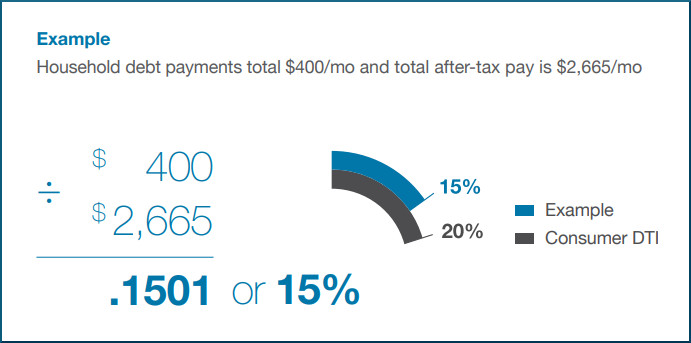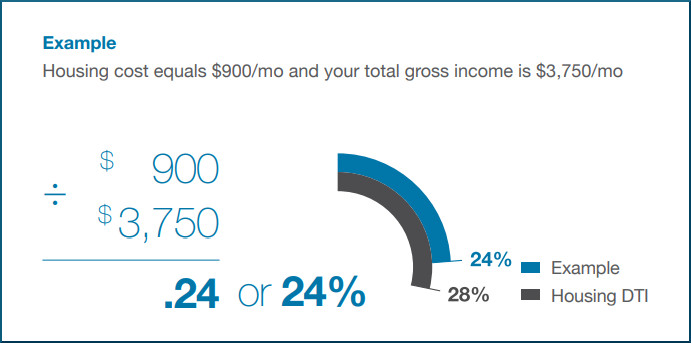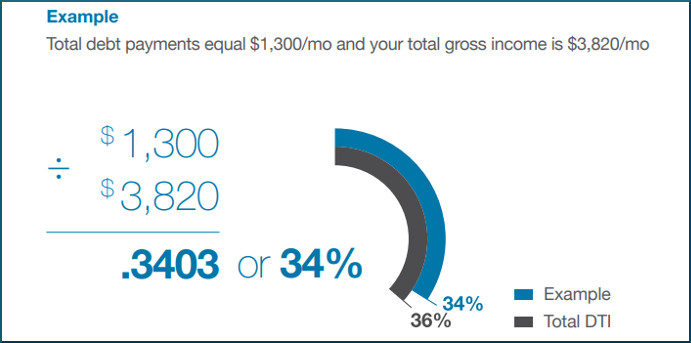The 3 Faces of Debt
- The (Sometimes) Good: Many responsible people use debt to acquire big-ticket items they need immediately. The vast majority of the population couldn't afford a college education, vehicle, or home without financing.
- The Bad: Credit cards or other forms of borrowing can make it easy to forget you're paying with real money. Don't take on debt without giving it some serious thought.
- The Ugly: When payments total more than you can afford, and there's no end in sight, debt has spiraled out of control.


The 3 Faces of Debt
- The (Sometimes) Good: Many responsible people use debt to acquire big-ticket items they need immediately. The vast majority of the population couldn't afford a college education, vehicle, or home without financing.
- The Bad: Credit cards or other forms of borrowing can make it easy to forget you're paying with real money. Don't take on debt without giving it some serious thought.
- The Ugly: When payments total more than you can afford, and there's no end in sight, debt has spiraled out of control.

Managing Debt

You Can Get Your Family Out of Debt.
The flashing red lights of indebtedness appear long before creditors start leaving intimidating voice messages, flooding your inbox with emails, and swamping you with collection notices. It takes personal effort and discipline to get your finances under control if your family becomes overextended. Here are some tips military spouses like you can employ to reverse the chaos and get your family on firm financial ground:
- Stop the Bleeding. To get out of debt, you’ve got to stop adding to it. Try going on a cash-only diet and try not to let a single dollar go to penalties or fees due to missed or late payments.
- Build a Safety Net. Stuff happens! If you don’t have cash in the bank to handle it when it does, you’ll end up going deeper in debt to pay for it. Creating an emergency fund — even if it's just a small one — can be a big help.
- Confront Your Debt. It's important to know what you owe, know how you got into debt in the first place, and know how to minimize your costs. Ask your lenders to lower your rates or consider a consolidation loan or balance transfer. Just be careful with this and make sure you don't run up the original debts again.
- Know Your Cash Flow. Understand what comes in, what goes out, and how you can free up money to put toward your debt.
- Adjust Your Cash Flow. Once you've figured out where to cut, make those budget adjustments to free up that debt-destroying extra cash.
- Pay It Down. One technique is to pay the minimums on all your debts except for the one in which you'll pay extra each month. To save on interest costs, attack the highest-rate debts first. To get a bigger emotional boost, attack the smallest balances first. The key is to have a plan and work it!



Calculate Your Debt to Income Ratio
As a military spouse, one way to ensure your household stays financially healthy is to calculate and monitor your debt to income (DTI) ratios. Simply stated, your DTI is based on how much you owe compared to how much your family earns each month. So, grab a calculator. What follows may change your life.
- Calculate Your Consumer DTI: First, add up your total minimum monthly debt payments — credit cards, student loans, etc. Do not include your mortgage payment or rent in this calculation. That comes later. Next, determine your monthly net income (your pay after taxes). Finally, divide your monthly debt payments by your after-tax monthly income. Then move the decimal two places to the right. The final number is the percentage of your income devoted to consumer debt. Financial experts recommend keeping your consumer DTI below 20%.

- Calculate Your Housing DTI: First, calculate your total housing payment each month. Include such things as rent, mortgage, condo fees, etc. Next, divide this number by your total monthly gross income, i.e. before deductions. It's best to keep your monthly housing obligations below 28%.

- Finally, Calculate Your Total DTI: From the previous calculations, add your total minimum monthly debt payments and your housing payments. Next, divide this total by your monthly gross income (before deductions). It's best to keep your total DTI below 36% of your gross pay.


WARNING! Avoid Payday Loans.
Payday loans often carry high interest rates, unaffordable repayment terms and coercive collection tactics. The penalties for extending loan repayment can be severe and overwhelming. Obtaining a payday loan is relatively easy. However, they are so burdensome that the Department of Defense (DoD) leadership has identified them as a threat to military readiness.
Obtaining a payday loan is relatively easy. However, they are so burdensome that the Department of Defense (DoD) leadership has identified them as a threat to military readiness.
A payday loan may appear to be a short-term solution to a temporary cash flow problem. In reality, it is a high-interest, high-fee loan that can quickly create long-term debt.
Payday loans generally range from $100 to $1,000 depending on state legal maximums. They are repaid out of your next paycheck (usually within a two-week period). Problems develop when you do not repay the payday loan from your next paycheck.
Consider these alternatives to payday loans:
- Talk to a counselor at your Military and Family Readiness support center and/or Military OneSource.
- Consult your military installation for financial counseling and information on zero-interest emergency loans. Ask about financial institutions that offer lower interest loans.
- Research interest rates on loans offered by your financial institution, which can be more competitive.
- Consider overdraft protection for your bank account.
MilLife Milestones
Watch








Dig Deeper



Managing Debt

You Can Get Your Family Out of Debt.
The flashing red lights of indebtedness appear long before creditors start leaving intimidating voice messages, flooding your inbox with emails, and swamping you with collection notices. It takes personal effort and discipline to get your finances under control if your family becomes overextended. Here are some tips military spouses like you can employ to reverse the chaos and get your family on firm financial ground:
- Stop the Bleeding. To get out of debt, you’ve got to stop adding to it. Try going on a cash-only diet and try not to let a single dollar go to penalties or fees due to missed or late payments.
- Build a Safety Net. Stuff happens! If you don’t have cash in the bank to handle it when it does, you’ll end up going deeper in debt to pay for it. Creating an emergency fund — even if it's just a small one — can be a big help.
- Confront Your Debt. It's important to know what you owe, know how you got into debt in the first place, and know how to minimize your costs. Ask your lenders to lower your rates or consider a consolidation loan or balance transfer. Just be careful with this and make sure you don't run up the original debts again.
- Know Your Cash Flow. Understand what comes in, what goes out, and how you can free up money to put toward your debt.
- Adjust Your Cash Flow. Once you've figured out where to cut, make those budget adjustments to free up that debt-destroying extra cash.
- Pay It Down. One technique is to pay the minimums on all your debts except for the one in which you'll pay extra each month. To save on interest costs, attack the highest-rate debts first. To get a bigger emotional boost, attack the smallest balances first. The key is to have a plan and work it!



Calculate Your Debt to Income Ratio
As a military spouse, one way to ensure your household stays financially healthy is to calculate and monitor your debt to income (DTI) ratios. Simply stated, your DTI is based on how much you owe compared to how much your family earns each month. So, grab a calculator. What follows may change your life.
- Calculate Your Consumer DTI: First, add up your total minimum monthly debt payments — credit cards, student loans, etc. Do not include your mortgage payment or rent in this calculation. That comes later. Next, determine your monthly net income (your pay after taxes). Finally, divide your monthly debt payments by your after-tax monthly income. Then move the decimal two places to the right. The final number is the percentage of your income devoted to consumer debt. Financial experts recommend keeping your consumer DTI below 20%.

- Calculate Your Housing DTI: First, calculate your total housing payment each month. Include such things as rent, mortgage, condo fees, etc. Next, divide this number by your total monthly gross income, i.e. before deductions. It's best to keep your monthly housing obligations below 28%.

- Finally, Calculate Your Total DTI: From the previous calculations, add your total minimum monthly debt payments and your housing payments. Next, divide this total by your monthly gross income (before deductions). It's best to keep your total DTI below 36% of your gross pay.


WARNING! Avoid Payday Loans.
Payday loans often carry high interest rates, unaffordable repayment terms and coercive collection tactics. The penalties for extending loan repayment can be severe and overwhelming. Obtaining a payday loan is relatively easy. However, they are so burdensome that the Department of Defense (DoD) leadership has identified them as a threat to military readiness.
Obtaining a payday loan is relatively easy. However, they are so burdensome that the Department of Defense (DoD) leadership has identified them as a threat to military readiness.
A payday loan may appear to be a short-term solution to a temporary cash flow problem. In reality, it is a high-interest, high-fee loan that can quickly create long-term debt.
Payday loans generally range from $100 to $1,000 depending on state legal maximums. They are repaid out of your next paycheck (usually within a two-week period). Problems develop when you do not repay the payday loan from your next paycheck.
Consider these alternatives to payday loans:
- Talk to a counselor at your Military and Family Readiness support center and/or Military OneSource.
- Consult your military installation for financial counseling and information on zero-interest emergency loans. Ask about financial institutions that offer lower interest loans.
- Research interest rates on loans offered by your financial institution, which can be more competitive.
- Consider overdraft protection for your bank account.
MilLife Milestones
Watch








Dig Deeper


Recent Blogs
Honoring the Heart of Our Military: The Resilient Spouses
Military spouses are the unsung heroes of our military community. Their unwavering dedication, resilience and incredible adaptability are the backbone of our military families and communities. Military spouses manage households, raise families, often pursue careers or volunteer tirelessly, all while navigating the unique challenges of military life — frequent moves, deployments, and the emotional toll…
Read MoreGiving Military Kids the Tools to Be Financially Capable
Military families are known for resilience, yet the frequent moves, deployments, and changes in income that come with military life can make financial stability feel like a juggling act. But these unique challenges may offer a golden teaching opportunity for military kids. By talking about finances openly and equipping kids with financial skills early on,…
Read MoreMarch Money Moves: Navigating Tax Season While Preparing for Summer Fun
As we welcome the arrival of spring and the promise of warmer weather, it’s easy to get caught up in thoughts of summer plans and family vacations. But with tax season in full swing, it’s important to balance excitement for the upcoming months with a push to wrap up tax season. While those topics couldn’t…
Read MoreCommunicating with Your Partner About Finances: A February Focus on Financial Wellness
Talking Money with Your Partner As we celebrate loving relationships this month, it’s important to remember that not all conversations come up roses between couples. Sometimes discussing finances can be tricky and stir up negative emotions. Open communication about money is vital for building trust and nurturing a healthy relationship. Whether you’re a new couple…
Read MoreBuild Financial Wellness from the Ground Up in 2025
There’s something magical about the ball dropping at midnight and turning the page to a new year. For an instant, it feels like you’ve got a clean slate, and anything is possible. In some ways that’s true, but as the calendar page turns, your responsibilities, bills and financial challenges remain. Many people make resolutions to…
Read More5 Financial Resolutions to Start the New Year Off Right
You don’t need to wait until January to take a fresh look at your finances. Get a jump on the new year with these five resolutions — they can really pay off over the next 12 months. 1. Set/update your budget Setting a budget is the first step in a military family’s financial planning. And…
Read More5 Financial Power Moves for MilSpouses
During National Veterans and Military Families Month in November, we salute the strength of our families as they support the mission of our community. MilSpouses, especially, display determination as they face the challenges of military life. We see you navigate frequent moves, deployments and often raising children as a solo parent. We understand your motivation…
Read MoreThe Year In Review: Bring Your Financial Picture into Focus
It can be fun and even eye-opening to watch those year-end montages reminiscing about the year. If you ever have that moment when you say to yourself, “Wait, that was this year?”, you could also imagine how easy it could be to lose track of the goals and financial plans you set in motion when…
Read More









